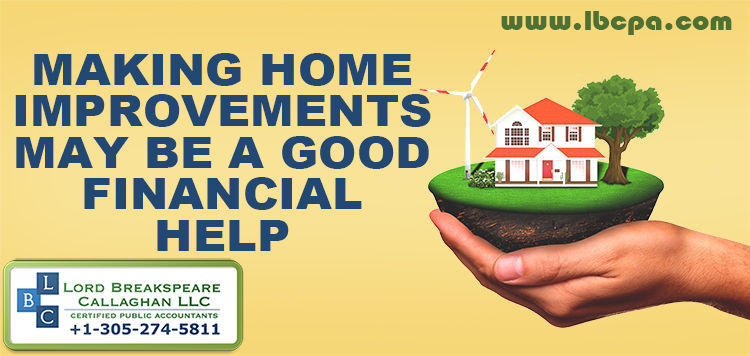LBCPA News 
Click here to go back
Energy Efficient Home Improvements Could Help People Reduce Energy Bills and Taxes

Homeowners who make improvements like replacing old doors and windows, installing solar panels or upgrading a hot water heater may qualify for home energy tax credits.
Who can claim the credits
Taxpayers making improvements to their principal, or, in some cases, secondary residence may be eligible for these credits. In some cases, renters may also be able to claim specific costs. Landlords can't use these credits for improvements made to any homes they rent out. See Form 5695 instructions for more information.
There are two tax credits to help offset costs of making energy efficient improvements.
Energy Efficient Home Improvement Credit
Taxpayers can claim the Energy Efficient Home Improvement Credit only for improvements, additions or renovations to an existing home. It doesn't apply to newly constructed homes. Qualifying costs may include:
- Exterior doors, windows, skylights and insulation materials.
- Central air conditioners, water heaters, furnaces, boilers and heat pumps.
- Biomass stoves and boilers.
- Home energy audits.
The amount of the credit taxpayers can take is a percentage of the total improvement expenses in the year of installation:
- 2023 through 2032: 30%, up to a maximum of $1,200 annually.
- Biomass stoves and boilers have a separate annual credit limit of $2,000 annually with no lifetime limit.
Residential Clean Energy Credit
Taxpayers can also claim the Residential Clean Energy Credit for qualifying costs for either an existing home or a newly constructed home. Qualifying costs may include:
- Solar, wind and geothermal power generation equipment.
- Solar water heaters.
- Fuel cells.
- Battery storage.
The amount of the credit taxpayers can take is a percentage of the total improvement expenses in the year of installation:
- 2022 - 2032: 30%, no annual maximum or lifetime limit.
- 2033: 26%, no annual maximum or lifetime limit.
- 2034: 22%, no annual maximum or lifetime limit.
To claim these credits, taxpayers should file Form 5695, Residential Energy Credits, with their tax return.
Beware of scams
Taxpayers should know what these credits can do for them and be careful of exaggerated claims from companies trying to get their business.
If you have any questions regarding Essential Business Accounting, Domestic Taxation, International Taxation, IRS Representation, U.S. Tax Implications of Real Estate Transactions or Financial Statements, please give us a call at +1-305-274-5811
Source : IRS






